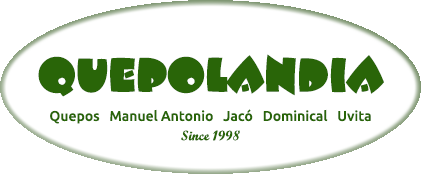The True National Religion
One day last week, I had to pay visits to three different government offices. I spent a lot of the day seated, waiting and waiting for my number to be called. Each office was similar: A casher seated behind a plexiglas window; an armed guard seemingly ill-prepared should he – God help us all — ever have to actually use his gun; a number of sober-faced Ticos behind desks; and a much larger number of patient citizens awaiting their numbers to be called. I had forgotten to bring something I had recently purchased to avoid long waits: My own roll of numbers just like the ones you pull off from the dispenser in order to receive attention. Mine were the real thing, courtesy of the ´´Take-A-Tab´´ company. The trick is to wait until they call a ´dead´ number, that is, a number no one responds to. Then quickly and surreptitiously leaf through your Take-A-Tabs until you get the number you need. Much time can be saved employing this method; all you need is your own personal roll of numbers, but I had forgotten mine.
In each office there was something about the surroundings—the solemnity, the sobriety, the reverential silence of all those waiting—that reminded me of church. Which is fitting. I have always been of the belief that Bureaucracy—and not Catholicism—should be considered the true official religion of Costa Rica. Every year more and more Costa Ricans leave the Catholic Church to become Evangelical or Pentecostal Christians or just abandon religion altogether and all is accepted. The teachings of the Catholic Church are debated and argued and sometimes questioned and there is little public outcry. But woe to the politician or economist who expresses the opinion that the public sector could easily be downsized considerably, that too much money is already thrown that direction on salaries, pensions and sick leave—the Bureaucracy and its participants and defenders will take to the streets in outrage that anyone could dare utter such blasphemies! And woe to anyone who voices such opinions to a random gathering of Costa Ricans: Chances are you will be directing your opinion toward someone who is employed in the public sector or who has a close relative collecting the bureaucratic paycheck. Forget the old axiom about politics and religion; in Costa Rica, if you want to stay safely on the good side of Ticos, avoid any pointed discussion of the bureaucracy.
At the third and final office I visited, my number was called quickly. I took my seat but before I could get a word out, the young woman on the other side of the desk asked me to wait while she caught up on some unfinshed business. Before her was a stack of papers equal in thickness to the Greater Los Angeles telephone book. In her right hand she wielded a stamper. Page by page she proceded, stamping each with a practiced precision. Although the stack was thick, she made great time—at one point I counted her doing 28 pages in 10 seconds. After only about 10 minutes, she finished her stamping. I started to speak but she held up her hand to indicate that she hadn´t yet finished. She put down her stamper and picked up one of those little gadgets used to cleanly remove staples. The papers had come in stapled sections; now, for whatever reason, she had to pluck each staple cleanly. This she did with great stealth and agility. Soon she had one unstapled stack before her. But before she could pass the papers on, she saw something on the top page that needed correcting. She produced a pen that, when squeezed, produced white correcting fluid. She whited something out, and then took the stack of papers to someone seated behind a partition. I had just witnessed the holy trinity of the bureaucrat—the stamper, the staple remover and the correction fluid pen—all put to use in a brief period of time, and I knew better than to show restlessness or impatience when she returned.
Every year, every adult living in Costa Rica sacrifices a few days or more in accumulated hours inside the offices of the Costa Rican Bureaucracy. It is not worth complaining about. It is simply the price one pays for living here. Consider those lost hours time spent worshiping at the altar of the True National Religion.
(Read the review by Jim Parisi of Matt’s book, Crazy From the Heat)

